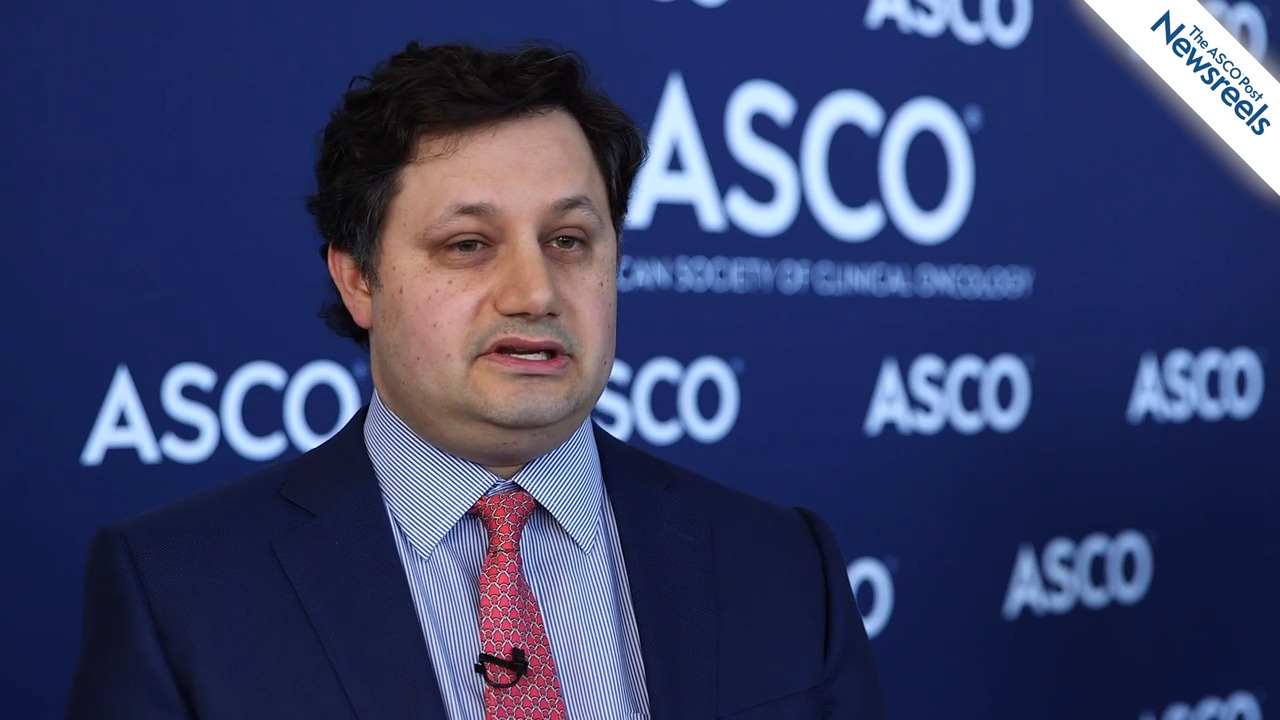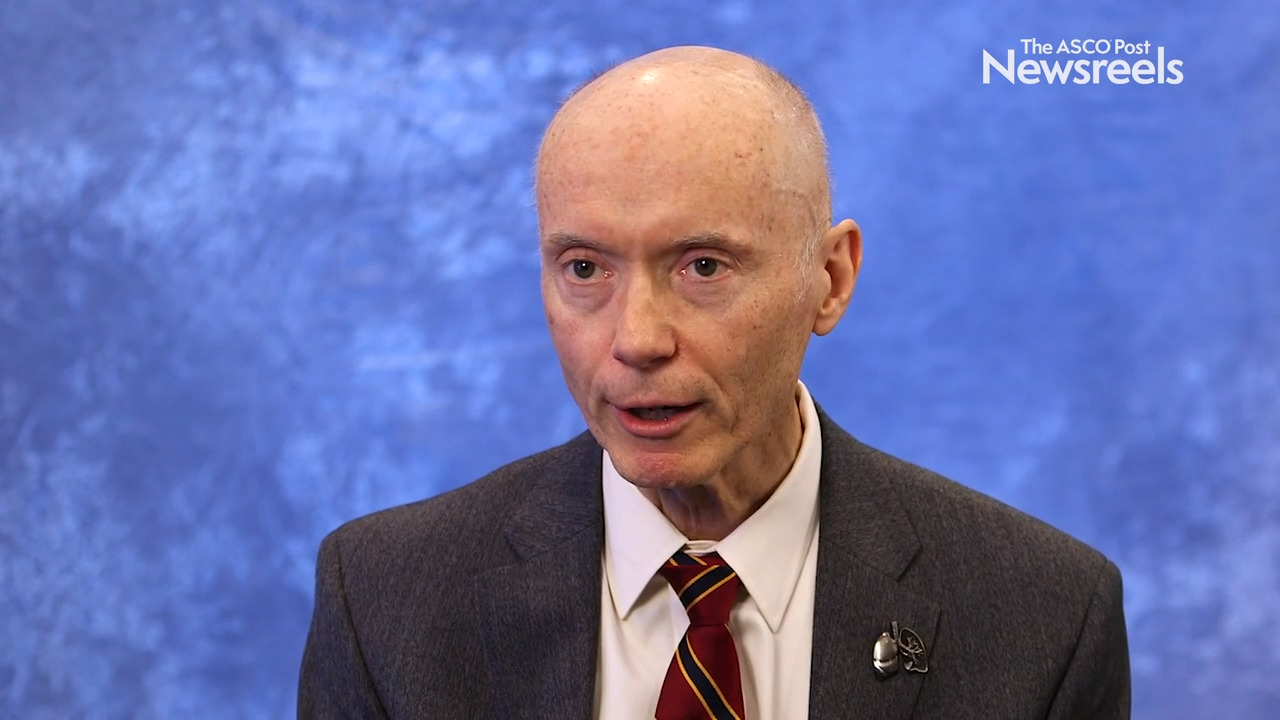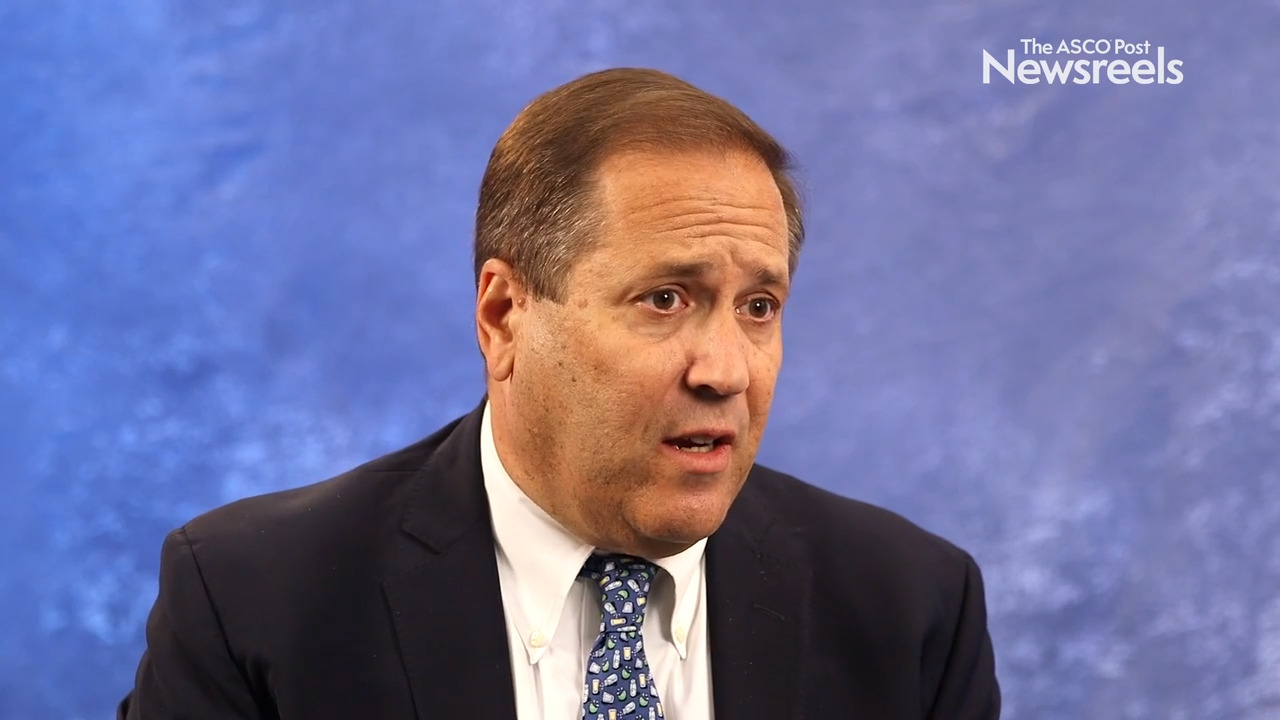Angela Lamarca, MD, PhD, on Biliary Tract Cancers: Active Symptom Control With Oxaliplatin and Fluorouracil
2019 ASCO Annual Meeting
Angela Lamarca, MD, PhD, of The Christie NHS Foundation Trust and the University of Manchester, discusses phase III findings from a multicenter study of active symptom control alone or active symptom control with oxaliplatin and fluorouracil for patients with locally advanced or metastatic biliary tract cancers previously treated with cisplatin and gemcitabine (Abstract 4003).
Suresh S. Ramalingam, MD, of Winship Cancer Institute, Emory University, discusses findings from the ECOG-ACRIN 5508 study, which showed that single-agent bevacizumab or pemetrexed is the optimal maintenance therapy for advanced nonsquamous NSCLC (Abstract 9002).
Brian C. Baumann, MD, of Washington University School of Medicine, discusses study findings that showed, for adults with locally advanced cancer across five different disease sites, proton chemoradiotherapy was associated with significantly reduced acute adverse events, with no difference in disease-free or overall survival (Abstract 6521).
David J. Kwiatkowski, MD, PhD, of Brigham and Women’s Hospital and Dana-Farber Cancer Institute, discusses an interim analysis and biomarker data from a multicenter study showing that 19% of patients with NSCLC had a major pathologic response to preoperative treatment with atezolizumab (Abstract 8503).
Mark J. Levis, MD, PhD, of The Sidney Kimmel Comprehensive Cancer Center at Johns Hopkins University, discusses the effect of gilteritinib on survival in patients with FLT3-mutated relapsed/refractory AML who have common co-mutations or a high FLT3-ITD allelic ratio, and the importance of FLT3-ITD testing at diagnosis and again at relapse (Abstract 7000).
Adam Brufsky, MD, PhD, of Magee-Womens Hospital and the Hillman Cancer Center at the University of Pittsburgh Medical Center, discusses phase III study findings on neratinib plus capecitabine vs lapatinib plus capecitabine in patients previously treated for HER2-positive metastatic breast cancer (Abstract 1002).





